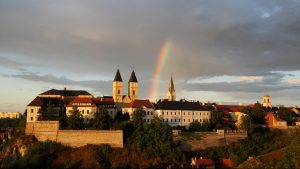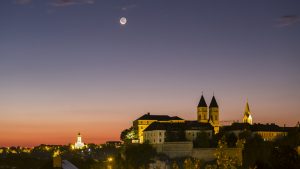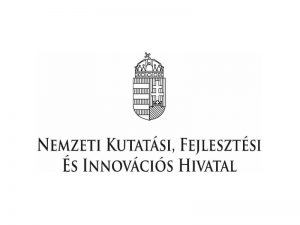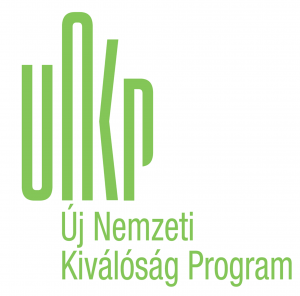Sustainability in another way
I am quite sure that you heard about the European Capitals of Culture (ECoC) programme as Veszprém will have the possibility to hold this title in 2023. (The town has shared the advantages of it with the Lake Balaton region.) It has a huge impact on the town’s community life as several community making events are planned until the end of 2023 and an important stakeholder of the project is the university community including university students. That is why I would like to shortly introduce the ECoC for you in this month.

The European Capitals of Culture programme is a very successful initiation in Europe that aims to protect and promote European culture among the citizens of the continent. Beside this, it was designed to increase European citizens’ sense of belonging to a common cultural area and strengthen the culture-based city development projects (ec.europe.eu,a).
Above all, it has several advantages regarding the economic and tourism capacities of the cities. Firstly, it can help the settlements to regenerate themselves and to raise the awareness of their international profile. Secondly, it can make the cities more attractive for the locals and enhance the general image of the cities. So, this initiative can revive the cultural life of the settlements and boost their tourism (ec.europe.eu,a).
From 1985, when this whole programme started, more than 50 cities had the possibility to win this impressive title across the European Union. The selection process of the cities is carried out according to a very precise and well-detailed procedure and the winners have 5 years to improve their planned projects and events (ec.europe.eu,a). However, some changes happened due to the coronavirus. For example, Rijeka in Croatia and Galway in Ireland who originally owned the title in 2020 had the possibility to extend their year until 30 April 2021. Beside this, Novi Sad in Serbia will postpone its year from 2021 to 2022 and Timisoara in Romania and Elefsina in Greece will hold the title in 2023 instead of the original 2021. This means that Veszprém could share victory and advantages of the ECoC with two other cities in 2023 (ec.europe.eu,b)

The Veszprém-Balaton 2023 European Capital of Culture programme has already started. According to the organisers this programme gives an excellent opportunity for the town and for the whole region and help the area to become a major European cultural scene and tourist destination. The organisers also planned to involve locals into the programmes and to increase the number of culture consumers. They look at this title as an effective tool to renew urban spaces with vibrant life, and forge stronger connections between Bakony Hills and Lake Balaton settlements and the county seat. They also plan to decrease the seasonality in the region and make it a whole year attractive destination for the tourists and for the inhabitants, as well (veszprembalaton2023).
This project aims to plan and carry out the events and programmes in a sustainable way that is why I became curious about this topic. So, I made some researches in this field. I had the possibility to carry out 4 structured interviews with the stakeholders (e.g. leaders, volunteers) of the Veszprém-Balaton 2023 project and ask them about the most important sustainability issues of the past and future happenings.
According to the answers, it seems that the organisers show strong commitment to all of the branches of sustainability as they plan to create a special event organization methodology and operation system that will definitely affect the environmental, social and economic impact of their programmes in a positive way. Within this framework, they will set up criteria for their event organisers that can make the planning, implementation and monitoring stages environmentally sustainable.

As for the economic part, they have set their sight on becoming economically sustainable during the whole project time. Regarding the social sustainability, they have already made serious steps to involve locals in order to satisfy their needs and requirements. A special group, the so-called Ragyogók was set up that includes enthusiastic volunteers who are committed to make the events better for the participants. Beside this, they carry out questionnaires and organise local forums for those who are interested in the project and who have some development suggestion.
In the case of environmental sustainability, they also did some concrete actions during the past events. They collected the answers of the participants of their festivals about how a festival can be environmentally friendly and they encourage their guests to collect their garbage selectively. According to my interviewees, the education of the tourists and locals are very important as it can contribute to the long-term environmentally friendly attitude in the everyday lives.
So as you can see, it is worth to take part in the ECoC in Veszprém, because highly valuable festivals and programs are planned addressing current issues of the environment regarding all aspects of sustainability.
Sources:
ec.europe.eu,a: European Capitals of Culture. Available at: https://ec.europa.eu/programmes/creative-europe/actions/capitals-culture_en
ec.europe.eu,b: Coronavirus: Commission proposes to extend 2020 European Capitals of Culture into 2021. Available at: https://ec.europa.eu/commission/presscorner/detail/en/IP_20_1474
Veszprembalaton2023: A New European Cultural and Creative Region. Available at: https://veszprembalaton2023.hu/en
„Supported by the ÚNKP-20-3 New National Excellence Program of the Ministry For Innovation and Technology from the source of the National Research, Development And Innovation Fund.”


(Photos: Tamás Ladányi)
